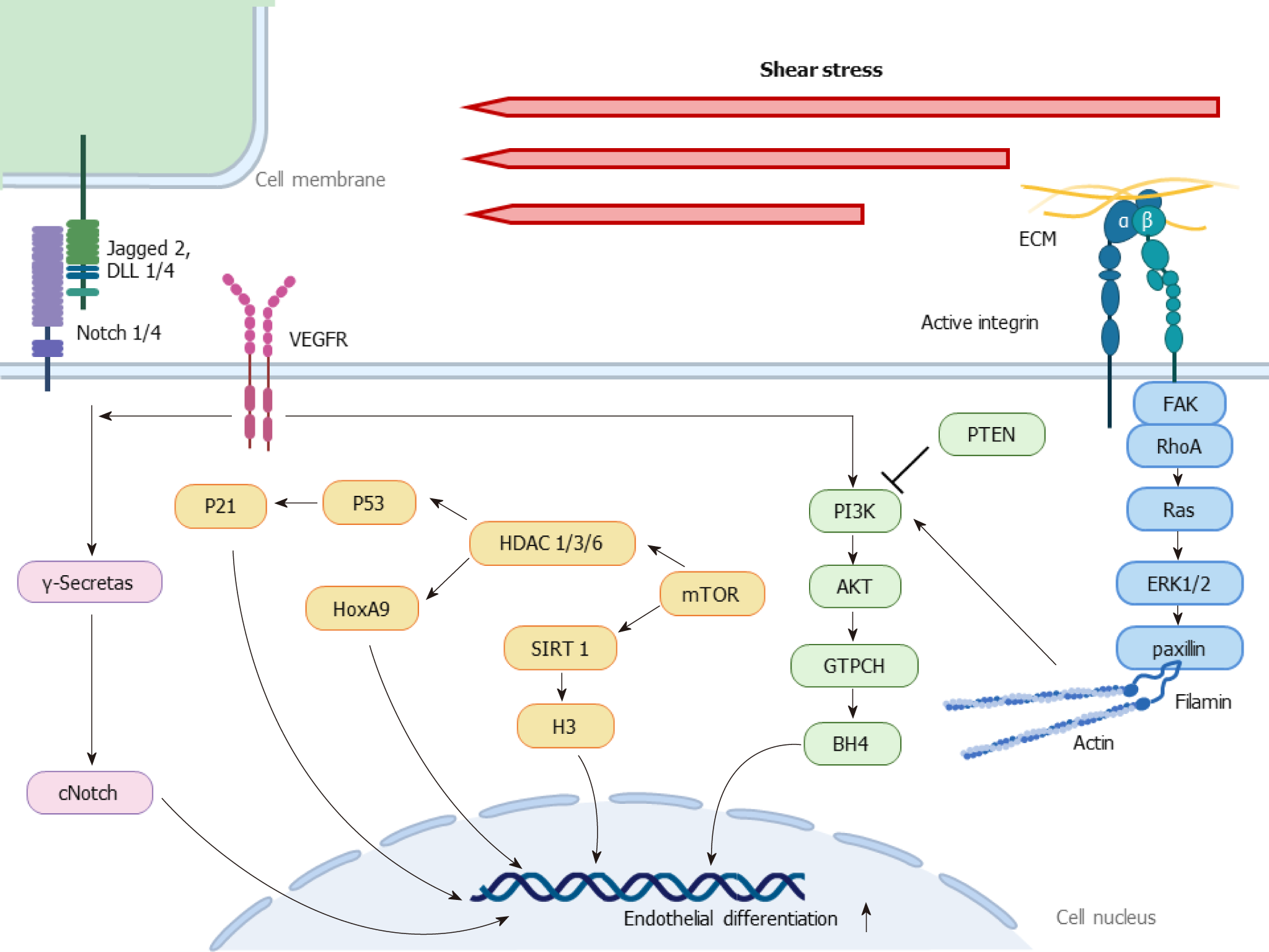Copyright
©The Author(s) 2021.
World J Stem Cells. Jul 26, 2021; 13(7): 894-913
Published online Jul 26, 2021. doi: 10.4252/wjsc.v13.i7.894
Published online Jul 26, 2021. doi: 10.4252/wjsc.v13.i7.894
Figure 2 Shear stress-induced signaling pathways in late endothelial differentiation.
This figure describes how the mechanosensitive molecules such as Notch 1/4, vascular endothelial growth factor receptor, integrins respond to the shear stress, accompanied by cytoskeleton reorganization via RhoA, Ras, ERK 1/2 and paxillin, and activate phosphoinositide 3-kinase-protein kinase B signaling, regulating various pathways including guanosine triphosphate cyclohydrolase-tetrahydrobiopterin, histone deacetylase (HDAC) 1/3/6-P53-P21, HDAC 1/3/6-HoxA9 and sirtuin 1-H3. These signaling cascades influence the gene expression of stem cells, ultimately regulating vessel maintenance and reformation. Akt: Protein kinase B; GTPCH: Guanosine triphosphate cyclohydrolase; BH4: Tetrahydrobiopterin; ECM: Extracellular matrix; HDAC: Histone deacetylase; KLF2: Krüppel-like factor 2; PI3K: Phosphoinositide 3-kinase; PTEN: Tumor suppressor phosphatase and tensin homolog; VEGFR: Vascular endothelial growth factor receptor.
- Citation: Huang Y, Qian JY, Cheng H, Li XM. Effects of shear stress on differentiation of stem cells into endothelial cells. World J Stem Cells 2021; 13(7): 894-913
- URL: https://www.wjgnet.com/1948-0210/full/v13/i7/894.htm
- DOI: https://dx.doi.org/10.4252/wjsc.v13.i7.894









